J. Douglas Bremner
See book keywords and concepts |
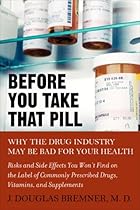 GINKGO BILOBA
Ginkgo biloba, a supplement derived from the ancient ginkgo tree of China, has long been believed to increase memory, energy, and concentration. It is also used to treat tinnitus and vascular disease. Many consider ginkgo a neuroprotective agent as well as an antioxidant. In Germany, more than 5 million prescriptions for ginkgo are written every year, and sales in the U.S. are $240 million per year. GINKGO BILOBA
Ginkgo biloba, a supplement derived from the ancient ginkgo tree of China, has long been believed to increase memory, energy, and concentration. It is also used to treat tinnitus and vascular disease. Many consider ginkgo a neuroprotective agent as well as an antioxidant. In Germany, more than 5 million prescriptions for ginkgo are written every year, and sales in the U.S. are $240 million per year. |
Gabriel Cousens
See book keywords and concepts |
 GINGKO BILOBA
Gingko biloba has membrane-stabilizing flavones and anthocyanides, which seem to protect against retinopathy.187
AMERICAN GINSENG
A team of researchers at the University of Toronto medical facility at St. Michael's Hospital in Toronto used American ginseng (Panax quin-quefolius) in the treatment of Type-2 diabetes.188 The authors in an earlier study showed that 3 grams of American ginseng, either with or 40 minutes before a 25-gram oral glucose challenge, significantly reduced the blood glucose levels in Type-2 diabetes. GINGKO BILOBA
Gingko biloba has membrane-stabilizing flavones and anthocyanides, which seem to protect against retinopathy.187
AMERICAN GINSENG
A team of researchers at the University of Toronto medical facility at St. Michael's Hospital in Toronto used American ginseng (Panax quin-quefolius) in the treatment of Type-2 diabetes.188 The authors in an earlier study showed that 3 grams of American ginseng, either with or 40 minutes before a 25-gram oral glucose challenge, significantly reduced the blood glucose levels in Type-2 diabetes. |
Bill Sardi
See book keywords and concepts |
 Quercetin
Quercetin, a natural substance found in red onions and the skin of red apples as well as Ginkgo biloba, inhibits the p38 kinase enzyme and improves the survival of cells in laboratory experiments. [Kidney International 58: 1078-87, 2000; J Endotoxin Research 7: 431-38, 2001] Quercetin and Ginkgo biloba both have been shown to inhibit the production of p38 kinase enzyme. [Biochem Pharmacology 62: 963-74, 2001]
6. Ginger
Ginger is a spice that possesses anti-inflammatory properties by virtue of its gingerol content. Ginger and its components are natural COX-2 inhibitors. Quercetin
Quercetin, a natural substance found in red onions and the skin of red apples as well as Ginkgo biloba, inhibits the p38 kinase enzyme and improves the survival of cells in laboratory experiments. [Kidney International 58: 1078-87, 2000; J Endotoxin Research 7: 431-38, 2001] Quercetin and Ginkgo biloba both have been shown to inhibit the production of p38 kinase enzyme. [Biochem Pharmacology 62: 963-74, 2001]
6. Ginger
Ginger is a spice that possesses anti-inflammatory properties by virtue of its gingerol content. Ginger and its components are natural COX-2 inhibitors. |
Gary Null and Amy McDonald
See book keywords and concepts |
 Ginkgo biloba Extract Egb 761 in Dementia: Intent-To-Treat Analyses of a 24-Week, Multi-Center, Double-Blind, Placebo-Controlled, Randomized Trial. Kanowski S; Hoerr R. Pharmacopsychiatry, 2003 November, 36(6):297-303.
This study corroborated previous findings that ginkgo biloba extract EGb 761 improves cognitive function in patients with dementia.
Natural Extracts as Possible Protective Agents of Brain Aging. Bastianetto S; Quirion R. Neurobiology of Aging, 2002 September-October, 23(5):891-897. Ginkgo biloba Extract Egb 761 in Dementia: Intent-To-Treat Analyses of a 24-Week, Multi-Center, Double-Blind, Placebo-Controlled, Randomized Trial. Kanowski S; Hoerr R. Pharmacopsychiatry, 2003 November, 36(6):297-303.
This study corroborated previous findings that ginkgo biloba extract EGb 761 improves cognitive function in patients with dementia.
Natural Extracts as Possible Protective Agents of Brain Aging. Bastianetto S; Quirion R. Neurobiology of Aging, 2002 September-October, 23(5):891-897. |
Andreas Moritz
See book keywords and concepts |
 Gingko Biloba—Brain Food; And Coenzyme Q10
I also recommend Gingko biloba, available at most health food stores. Guarana and Gingko seem to complement each other. Gingko is considered brain food. It apparently increases blood flow to the brain, thereby improving memory and brain function. It is known to improve all kinds of circulatory problems and it especially increases blood flow to the heart, extremities, skin, eyes, inner ear and other organs. Gingko is known to relieve anxiety and depression, vertigo, headaches, tinnitus, PMS, asthma, allergy symptoms, and hepatitis. Gingko Biloba—Brain Food; And Coenzyme Q10
I also recommend Gingko biloba, available at most health food stores. Guarana and Gingko seem to complement each other. Gingko is considered brain food. It apparently increases blood flow to the brain, thereby improving memory and brain function. It is known to improve all kinds of circulatory problems and it especially increases blood flow to the heart, extremities, skin, eyes, inner ear and other organs. Gingko is known to relieve anxiety and depression, vertigo, headaches, tinnitus, PMS, asthma, allergy symptoms, and hepatitis. |
Brigitte Mars, A.H.G.
See book keywords and concepts |
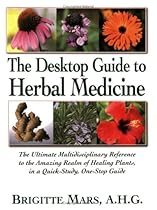 The species name, biloba, derives from the Latin bis, "double," and loba, "lobes," in reference to the two-lobed leaves. The species name, biloba, derives from the Latin bis, "double," and loba, "lobes," in reference to the two-lobed leaves. |
Robert S. McCaleb, Evelyn Leigh, and Krista Morien
See book keywords and concepts |
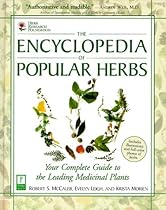 Rdkan (Ginkgo biloba). Recent Results in Pharmacology and Clinic. Berlin, Heidelberg, and New York: Springer Verlag, 1988;321-326.
Allard M. Effects of Ginkgo biloba extract on normal or altered memory function in man. In: ChristenY, Costentin J, Lacour M, eds. Effects of Ginkgo biloba extract (EGb 761) on the Central Nervous System. Paris: Elsevier, 1992.
Rapin JR, Lamproglou I, Drieu K, et al. Demonstration of the "anti-stress" activity of an extract of Ginkgo biloba (EGB 761) using a discrimination learning task. General Pharmacology 1994; 25(5): 1009-1016.
Winter E. Rdkan (Ginkgo biloba). Recent Results in Pharmacology and Clinic. Berlin, Heidelberg, and New York: Springer Verlag, 1988;321-326.
Allard M. Effects of Ginkgo biloba extract on normal or altered memory function in man. In: ChristenY, Costentin J, Lacour M, eds. Effects of Ginkgo biloba extract (EGb 761) on the Central Nervous System. Paris: Elsevier, 1992.
Rapin JR, Lamproglou I, Drieu K, et al. Demonstration of the "anti-stress" activity of an extract of Ginkgo biloba (EGB 761) using a discrimination learning task. General Pharmacology 1994; 25(5): 1009-1016.
Winter E. |
Joerg Gruenwald, Ph.D.
See book keywords and concepts |
 Dfeudis FV, Ginkgo biloba extract (EGb 761): Pharmacological activities and clinical applications. In: Elsevier Editions Scientifiques Paris. 1991.
Dingermann T, Phytopharmaka im Alter: Crataegus, Ginkgo, Hypericum und Kava- Kava. In: PZ 140(23):2017-2024. 1995.
Dorn M, Braunig B, Gross HD, Ginkgo-Dragees bei zerebraler Leistungsschwache. In: ZPT 12(6):180. 1991.
Ermini-Fiinfschilling D, (1992) Moglichkeiten und Grenzen eines Gedachtnistrainings mit Patienten bei beginnender Demenz. Z Moderne Geriatrie 12:459-456. Dfeudis FV, Ginkgo biloba extract (EGb 761): Pharmacological activities and clinical applications. In: Elsevier Editions Scientifiques Paris. 1991.
Dingermann T, Phytopharmaka im Alter: Crataegus, Ginkgo, Hypericum und Kava- Kava. In: PZ 140(23):2017-2024. 1995.
Dorn M, Braunig B, Gross HD, Ginkgo-Dragees bei zerebraler Leistungsschwache. In: ZPT 12(6):180. 1991.
Ermini-Fiinfschilling D, (1992) Moglichkeiten und Grenzen eines Gedachtnistrainings mit Patienten bei beginnender Demenz. Z Moderne Geriatrie 12:459-456. |
| Bauer R, Zschocke S, Medizinische Anwendung von Ginkgo biloba Geschichtliche Entwicklung. In: ZPT 17(5):275-283. 1996.
Beske F, Kunczik T, (1991) Friihzeitige Therapie kami Milliarden sparen. Der Kassenarzt 42:36-42.
Blaha L, (1989) Differentialdiagnose der zerebralen Insuffizienz in der Praxis. Geriatrie und Rehabilitation 2,1:23-28.
Braquet P (Ed.), Ginkgolides. Chemistry, Biology, Pharmacology and Clinical Perspectives. Vol I. JR Prous Science, Barcelona 1988.
Braquet P (Ed.), Ginkgolides. Chemistry, Biology, Pharmacology and Clinical Perspectives. |
| For this reason, extracts of Ginkgo biloba have the potential to interact with antithrombotic therapy.
DOSAGE
Mode of Administration: Ginkgo is available in liquid or solid pharmaceutical forms, for oral intake.
Daily Dosage: The average daily dose is 120 mg of dried extract in 2 or 3 doses orally (in clinical studies up to 240 mg were used as a daily dose); parenteral daily dose is 50 to 100 mg of the drug.
In traditional Chinese medicine, the daily dose is 3 to 6 gm of leaves as an infusion.
Storage: Ginkgo must be protected from light and moisture. |
| CONTRAINDICATIONS
The drug is contraindicated in patients known to be hypersensitive to Ginkgo biloba preparations.
PRECAUTIONS AND ADVERSE REACTIONS
General: Health risks or side effects following the proper administration of designated therapeutic dosages are not recorded. Mild gastrointestinal complaints could occur as side effects. Allergic skin reactions have been observed on extremely rare occasions. The possible hypersensitivity reactions are: occurrence of spasms and cramps and, in cases of acute toxicity, atonia and adynamia. |
| Production: A dry extract from the dried leaf of Ginkgo biloba is manufactured using acetone/water and subsequent purification steps without addition of concentrates or isolated ingredients. |
| Israel L, Dell'Accio E, Martin G, Hugonot R, (1987) Extrait de Ginkgo biloba et exercices d'entra nement de la memoire. Evaluation comparative chez personnes (gees ambulatoiRes Psychologie Medicinale 19(8):1431-1439.
Joyeux M et al. Comparative antilipoperoxidant, antinecrotic and scavenging properties of terpenes and biflavones from Ginkgo and some flavonoids. In: PM 61(2): 126-129. 1995.
Kanowski S, (1991) Klinischer Wirksamkeitsnachweis bei Nootropika. Miinch Med Wschr 133:5-8. |
Jonny Bowden, Ph.D., C.N.S.
See book keywords and concepts |
 Green tea was one of the eight (the other seven were aged garlic, curcumin, melatonin, resveratrol, Gingko biloba, vitamin C, and vitamin E). And a paper published recently in the Journal of Nutritional Biochemistry (September 2004) examined the neuroprotective mechanisms of green tea polyphenols— especially EGCG—on both Alzheimer's and Parkinson's disease.
Everyone Benefits from Tea
I've spent this much time on tea because it is one of the few foods (or drinks) about which I can say that virtually everyone would benefit from drinking it. Green tea was one of the eight (the other seven were aged garlic, curcumin, melatonin, resveratrol, Gingko biloba, vitamin C, and vitamin E). And a paper published recently in the Journal of Nutritional Biochemistry (September 2004) examined the neuroprotective mechanisms of green tea polyphenols— especially EGCG—on both Alzheimer's and Parkinson's disease.
Everyone Benefits from Tea
I've spent this much time on tea because it is one of the few foods (or drinks) about which I can say that virtually everyone would benefit from drinking it. |
Ray Strand, M.D.
See book keywords and concepts |
 Ginkgo biloba has become a popular herb for a wide variety of medical problems, the most common being hardening of the arteries. Several studies have shown that Ginkgo biloba helps increase the circulation of blood in the brain and extremities. Many herbalists and researchers believe it improves one's ability to think and boosts stamina as a result of this increased blood flow. But Ginkgo biloba has an additional effect of thinning the blood, which can lead to serious complications if a person is also taking aspirin or Coumadin. Ginkgo biloba has become a popular herb for a wide variety of medical problems, the most common being hardening of the arteries. Several studies have shown that Ginkgo biloba helps increase the circulation of blood in the brain and extremities. Many herbalists and researchers believe it improves one's ability to think and boosts stamina as a result of this increased blood flow. But Ginkgo biloba has an additional effect of thinning the blood, which can lead to serious complications if a person is also taking aspirin or Coumadin. |
Thomson Healthcare, Inc.
See book keywords and concepts |
 However, the 10 of 14 trials included (792 patients) in this Cochrane Collaboration review of randomized (or quasi-randomized) controlled clinical trials comparing Gingko biloba extract with placebo or open control (no placebo) for promoting recovery following an acute ischaemic stroke found no convincing evidence for use of the herb. Specifically, although such factors as evidence of stroke via confirmation by brain scan was included, the evidence from trials of high quality overall was insufficient. However, the 10 of 14 trials included (792 patients) in this Cochrane Collaboration review of randomized (or quasi-randomized) controlled clinical trials comparing Gingko biloba extract with placebo or open control (no placebo) for promoting recovery following an acute ischaemic stroke found no convincing evidence for use of the herb. Specifically, although such factors as evidence of stroke via confirmation by brain scan was included, the evidence from trials of high quality overall was insufficient. |
Dr. Gary Null
See book keywords and concepts |
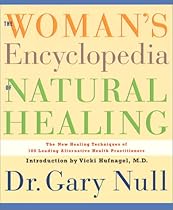 Ginkgo biloba extract increases cholinergic transmission in aged animals and addresses major elements involved in Alzheimer's disease.
M. Allard, "Treatment of Old Age Disorders with Ginkgo biloba Extract: From Pharmacology to Clinic," in E. W. Fun-gold, ed., Rokan (Ginkgo biloba)-Recent Results in Pharmacology and Clinic (New York: Springer-Verlag, 1988): 201-11.
A study of 54 patients with mild impairment of everyday function showed that Ginkgo biloba extract improved accuracy and speed in tests of cognitive efficiency.
K. Wesnes et al. Ginkgo biloba extract increases cholinergic transmission in aged animals and addresses major elements involved in Alzheimer's disease.
M. Allard, "Treatment of Old Age Disorders with Ginkgo biloba Extract: From Pharmacology to Clinic," in E. W. Fun-gold, ed., Rokan (Ginkgo biloba)-Recent Results in Pharmacology and Clinic (New York: Springer-Verlag, 1988): 201-11.
A study of 54 patients with mild impairment of everyday function showed that Ginkgo biloba extract improved accuracy and speed in tests of cognitive efficiency.
K. Wesnes et al. |
Thomson Healthcare, Inc.
See book keywords and concepts |
 Over a period of 26 weeks, the patients received Ginkgo biloba extract at a daily dose of 120 mg, 240 mg, or placebo. Results revealed no efficacy with the Ginkgo extract and no significant differences between groups (Schneider et al, 2005).
Gingko improved cognitive performance and social functioning in a 52-week randomized, double-blind, placebo-controlled, parallel-group, multicenter study in patients with uncomplicated Alzheimer's disease or multi-infarct dementia. These individuals were administered Ginkgo extract (EGb) 40 mg 3 times a day or an unspecified placebo for 52 weeks. Over a period of 26 weeks, the patients received Ginkgo biloba extract at a daily dose of 120 mg, 240 mg, or placebo. Results revealed no efficacy with the Ginkgo extract and no significant differences between groups (Schneider et al, 2005).
Gingko improved cognitive performance and social functioning in a 52-week randomized, double-blind, placebo-controlled, parallel-group, multicenter study in patients with uncomplicated Alzheimer's disease or multi-infarct dementia. These individuals were administered Ginkgo extract (EGb) 40 mg 3 times a day or an unspecified placebo for 52 weeks. |
Jack Challem
See book keywords and concepts |
 What else you should know: Ginkgo (Ginkgo biloba) is a venerable Chinese herb whose benefits in mental function are now being confirmed by scientific studies. Fuzzy thinking can impair judgment, and poor memory can contribute to feelings of frustration and anxiety.
Studies have shown that ginkgo supplements increase blood circulation in the brain and activate brain activity. In an animal study, researchers found that ginkgo extracts boosted the activity of ten essential genes in brain cells by up to sixteen times. What else you should know: Ginkgo (Ginkgo biloba) is a venerable Chinese herb whose benefits in mental function are now being confirmed by scientific studies. Fuzzy thinking can impair judgment, and poor memory can contribute to feelings of frustration and anxiety.
Studies have shown that ginkgo supplements increase blood circulation in the brain and activate brain activity. In an animal study, researchers found that ginkgo extracts boosted the activity of ten essential genes in brain cells by up to sixteen times. |
Thomson Healthcare, Inc.
See book keywords and concepts |
 Subjects (n=1121) were randomized to receive Ginkgo biloba extract LI 1370, 50 mg, 3 times daily or placebo. Of 1,121 subjects, a total of 956 subjects were paired. No significant differences were found between the groups at weeks 4, 12, and 14 as determined by a 21-symptom questionnaire. Audiological measurements were not taken. Adverse effects were similar between groups (Drew & Davies, 2001).
A mini-review of five controlled, randomized trials from 1986 to 1998 demonstrated favorable results in the treatment of tinnitus with Gingko. Subjects (n=1121) were randomized to receive Ginkgo biloba extract LI 1370, 50 mg, 3 times daily or placebo. Of 1,121 subjects, a total of 956 subjects were paired. No significant differences were found between the groups at weeks 4, 12, and 14 as determined by a 21-symptom questionnaire. Audiological measurements were not taken. Adverse effects were similar between groups (Drew & Davies, 2001).
A mini-review of five controlled, randomized trials from 1986 to 1998 demonstrated favorable results in the treatment of tinnitus with Gingko. |
| Vitiligo
Active progression of depigmentation was halted in subjects with vitiligo treated with Ginkgo biloba for 6 months. Forty-seven subjects with progressive vitiligo were enrolled in a double-blind, placebo-controlled trial. Group A (n=25) subjects received Ginkgo extract 40 mg (9.6 mg ginkgoflavon-glycosides) orally 3 times daily and group B subjects (n=22) received placebo on the same schedule. Active progression of the disease was halted in 20 patients on Ginkgo compared with 8 patients on placebo (p =0.006). |
Bill Sardi
See book keywords and concepts |
 Kidney International 58: 1078-87, 2000; J Endotoxin Research 7: 431-38, 2001] Quercetin and Ginkgo biloba both have been shown to inhibit the production of p38 kinase enzyme. [Biochem Pharmacology 62: 963-74, 2001]
6. Ginger
Ginger is a spice that possesses anti-inflammatory properties by virtue of its gingerol content. Ginger and its components are natural COX-2 inhibitors. [Food Chem Toxicology 40: 1091-97,2002] Gingerol inhibits the spread of cancer cells. Kidney International 58: 1078-87, 2000; J Endotoxin Research 7: 431-38, 2001] Quercetin and Ginkgo biloba both have been shown to inhibit the production of p38 kinase enzyme. [Biochem Pharmacology 62: 963-74, 2001]
6. Ginger
Ginger is a spice that possesses anti-inflammatory properties by virtue of its gingerol content. Ginger and its components are natural COX-2 inhibitors. [Food Chem Toxicology 40: 1091-97,2002] Gingerol inhibits the spread of cancer cells. |
| This simple emulsifier has been shown to improve the biological action of natural herbal products such as quercetin, ginkgo biloba and silybin, the active ingredient in milk thistle. [Planta Medica 67: 326-30, 2001; European Journal Cancer 39: 2403-10, 2003; Bioscience Biotechnology Biochemistry 67: 2548-55, 2003]
Anemia: Erythropoietin
Iron deficiency anemia resulting in low red blood cell count is common among cancer patients. Cancer activates inflammatory molecules that destroy red blood cells. |
Erich Grotewold
See book keywords and concepts |
 The conversion of (+)dihydromyrecetin to its flavan-3,4-diol (leucodelphinidin) and to (+)-gallocatechin by reductases extracted from tissue cultures of Ginko biloba and Pseudotsuga menziesii, Plant Physiol 78: 791-794. Stich, K., and Forkmann, G., 1988, Biosynthesis of 3-deoxyanthocyanins with flower extracts from
Sinningia cardinalis, Phytochem 27: 785-789. Subburaj, K., Murugesh, M. G., and Trivedi, G. K., 1997, Regioselective total synthesis of edulane and its angular analog, J Chem Soc, Perkin Trans 1 1875-1878. Sutter, A., Poulton, J., and Grisebach, H. The conversion of (+)dihydromyrecetin to its flavan-3,4-diol (leucodelphinidin) and to (+)-gallocatechin by reductases extracted from tissue cultures of Ginko biloba and Pseudotsuga menziesii, Plant Physiol 78: 791-794. Stich, K., and Forkmann, G., 1988, Biosynthesis of 3-deoxyanthocyanins with flower extracts from
Sinningia cardinalis, Phytochem 27: 785-789. Subburaj, K., Murugesh, M. G., and Trivedi, G. K., 1997, Regioselective total synthesis of edulane and its angular analog, J Chem Soc, Perkin Trans 1 1875-1878. Sutter, A., Poulton, J., and Grisebach, H. |
Bill Sardi
See book keywords and concepts |
 Ginkgo biloba ... 450 The phytoestrogens... 450
Flax among men ... 455
Flaxseed, flax oil or flax lignans? ... 455
Pomegranate ... 457
Graviola (Paw Paw)... 458
Ginseng ... 458
Ginger... 459
Olive leaf extract ... 460
Lycopene ... 463
Lycopene disappoints ... 465 Blood levels of lycopene ... 465 Dietary lycopene intake ... 465 Lycopene prostate concentration ... 466 Stability of lycopene ... 466 Dosage of lycopene ... 467 Sources of lycopene ... 468 Absorption of lycopene ... 468 Companion nutrients... 468 Hormonal factors... 468 Lycopene supplements... 469
Garlic ... Ginkgo biloba ... 450 The phytoestrogens... 450
Flax among men ... 455
Flaxseed, flax oil or flax lignans? ... 455
Pomegranate ... 457
Graviola (Paw Paw)... 458
Ginseng ... 458
Ginger... 459
Olive leaf extract ... 460
Lycopene ... 463
Lycopene disappoints ... 465 Blood levels of lycopene ... 465 Dietary lycopene intake ... 465 Lycopene prostate concentration ... 466 Stability of lycopene ... 466 Dosage of lycopene ... 467 Sources of lycopene ... 468 Absorption of lycopene ... 468 Companion nutrients... 468 Hormonal factors... 468 Lycopene supplements... 469
Garlic ... |
| Cellular Molecular Biology 48: 655-62, 2002] Ginkgo biloba may also be helpful in preventing the toxic cardiac side effects of certain chemotherapy drugs (Adriamycin). [Research Communications Molecular Pathology Pharmacology 106: 181-92, 1999]
The phytoestrogens
Estrogen is recognized as a promoter of breast cancer. Both elevated concentrations of estrogen and hormone replacement therapy with estrogen for menopause are associated with an increased risk of breast cancer. |
| Natural iron chelators such as bioflavonoids (extracts from grape seed, bilberry, cranberry, blueberry, cherry, milk thistle, ginkgo biloba, green tea, quercetin, rutin, and others), IP6 rice bran extract, or echinacea, may be consumed from foods and supplements, to inhibit the production of hyaluronidase, the enzyme that breaks down HA.
Once cancer has begun to grow and spread, short-length, low-molecular weight HA taken orally may help to intercept circulating tumors cells.
Use of hyaluronidase to treat cancer should remain under a doctor's supervision. |
Dr. Gary Null
See book keywords and concepts |
 HERBS/PLANT EXTRACTS
Ginkgo biloba extract is effective in all types of dementia, even cognitive disorders secondary to depression (because of its beneficial effect on mood).
D. M. Warburton, "Psycho-pharmacologie clinique de L'extrait de Ginkgo biloba," [Clinical Psychopharmacology of Ginkgo biloba Extract], Presse Med 15, no. 31 (Sept. 25, 1986): 1595-1604.
Ginkgo biloba is prescribed for psychiatric and behavioral disorders, and for vascular and nervous system problems. Numerous clinical trials justify these prescriptions.
M. HERBS/PLANT EXTRACTS
Ginkgo biloba extract is effective in all types of dementia, even cognitive disorders secondary to depression (because of its beneficial effect on mood).
D. M. Warburton, "Psycho-pharmacologie clinique de L'extrait de Ginkgo biloba," [Clinical Psychopharmacology of Ginkgo biloba Extract], Presse Med 15, no. 31 (Sept. 25, 1986): 1595-1604.
Ginkgo biloba is prescribed for psychiatric and behavioral disorders, and for vascular and nervous system problems. Numerous clinical trials justify these prescriptions.
M. |
Jonny Bowden, Ph.D., C.N.S.
See book keywords and concepts |
 Natural Prescription for Cognitive Decline
Huperzine A: 60-200 meg
* FOR ADDED EFFECTIVENESS:
Vitamin E (mixed tocopherols):
1,000-2,000 IU daily
A daily antioxidant or vitamin supplement: taken as directed on package label
Ginkgo biloba: 120-480 mg in divided doses
Omega-3 fatty acids (or an essential fatty acid supplement): 1-3 g per day
(see also cognitive decline on page 109)
Note: All dosages are daily dosages and come in pill or capsule form unless otherwise noted.
H.Y. Natural Prescription for Cognitive Decline
Huperzine A: 60-200 meg
* FOR ADDED EFFECTIVENESS:
Vitamin E (mixed tocopherols):
1,000-2,000 IU daily
A daily antioxidant or vitamin supplement: taken as directed on package label
Ginkgo biloba: 120-480 mg in divided doses
Omega-3 fatty acids (or an essential fatty acid supplement): 1-3 g per day
(see also cognitive decline on page 109)
Note: All dosages are daily dosages and come in pill or capsule form unless otherwise noted.
H.Y. |
Amarjit S. Basra
See book keywords and concepts |
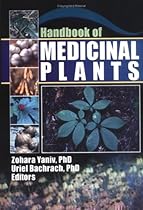 Ginkgo biloba has long been used in herbal practices and is officially listed in the Chinese pharmacopoeia. It is prescribed for treatment of cerebro-
0
FIGURE 11.5. Chemical structure of HA-1.
FIGURE 11.6. Chemical structure of ZT-1. vascular and cardiovascular disorders, ncurosensory-relatcd problems, disturbances in vigilance, short-term memory loss, and other cognitive dysfunctions associated with aging and senility. Ginkgolides, isolated from the root bark and leaves of Ginkgo biloba, possess important pharmacological properties. Ginkgo biloba has long been used in herbal practices and is officially listed in the Chinese pharmacopoeia. It is prescribed for treatment of cerebro-
0
FIGURE 11.5. Chemical structure of HA-1.
FIGURE 11.6. Chemical structure of ZT-1. vascular and cardiovascular disorders, ncurosensory-relatcd problems, disturbances in vigilance, short-term memory loss, and other cognitive dysfunctions associated with aging and senility. Ginkgolides, isolated from the root bark and leaves of Ginkgo biloba, possess important pharmacological properties. |












